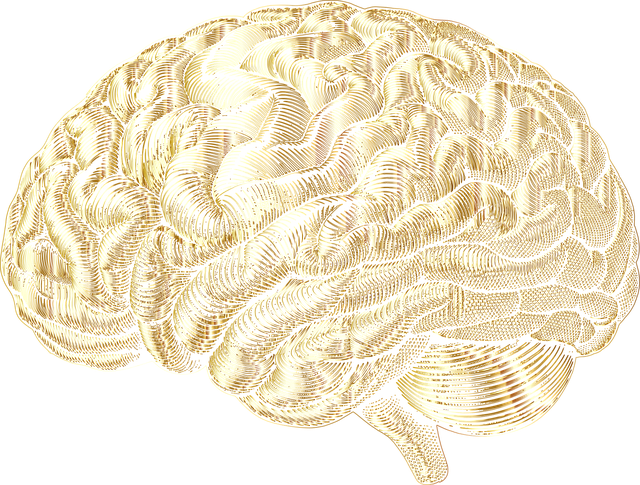Broomfield Grief Counseling Therapy is transforming mental health diagnosis by merging advanced techniques (Stress Management, Social Skills Training) with modern technology (AI-driven analysis of patient narratives). This holistic approach, combined with Mental Health Policy advocacy and education programs, enhances diagnostic accuracy, enables early intervention, and promotes personalized treatment for improved patient outcomes.
Mental illness diagnosis accuracy is a critical aspect of patient care, and continuous improvement efforts are essential in supporting individuals seeking help. This article explores strategies to enhance diagnostic processes, focusing on three key areas: advanced assessment techniques, provider training, and early intervention. By integrating innovative methods like technology-aided evaluations and comprehensive training programs, healthcare professionals can improve diagnosis accuracy, as demonstrated by successful case studies. Additionally, public awareness campaigns and community education play a vital role in identifying risk factors, fostering resilience, and promoting preventive measures, such as Broomfield Grief Counseling Therapy.
- Enhancing Assessment Techniques for Accurate Diagnoses
- – Exploring innovative methods in mental health evaluation
- – Integrating advanced tools and technologies in diagnostic processes
Enhancing Assessment Techniques for Accurate Diagnoses

In the pursuit of enhancing mental illness diagnosis accuracy, the focus on improving assessment techniques is paramount. Traditional methods often rely heavily on patient self-reporting, which can be subjective and inconsistent. To address this challenge, professionals in Broomfield Grief Counseling Therapy are incorporating advanced techniques that go beyond traditional questionnaires and interviews. These innovative approaches involve integrating Stress Management strategies to gain a more comprehensive understanding of patients’ emotional states.
By combining Mental Health Awareness with dynamic assessment methods, therapists can better interpret symptoms. For instance, Social Skills Training has proven effective in identifying subtle cues that may indicate underlying mental health conditions. This holistic integration of therapeutic practices ensures that diagnosis is not just based on isolated symptoms but on a nuanced understanding of the patient’s emotional landscape, leading to more accurate and early detection of mental illness.
– Exploring innovative methods in mental health evaluation

In the realm of mental health evaluation, efforts to enhance diagnosis accuracy have led to an exploration of innovative methods. One such approach involves integrating advanced technology and data analytics to support clinical decision-making. For instance, digital assessment tools and artificial intelligence algorithms can help identify subtle patterns in patient narratives, enhancing the precision of diagnoses. These tools not only streamline the evaluation process but also provide a more comprehensive understanding of an individual’s mental health landscape, as seen in the application of Broomfield Grief Counseling Therapy.
Furthermore, Mental Health Policy Analysis and Advocacy play a crucial role in promoting these innovative evaluations by ensuring healthcare policies support access to cutting-edge resources. Simultaneously, Mental Health Education Programs Design should focus on training healthcare professionals to effectively utilize these new methods. By combining technological advancements with robust educational initiatives, the mental health community can foster more accurate diagnoses, ultimately improving patient outcomes and encouraging positive thinking.
– Integrating advanced tools and technologies in diagnostic processes

In recent years, advancements in technology have revolutionized the landscape of mental health diagnosis. Integrating advanced tools and technologies into diagnostic processes allows for a more nuanced and accurate assessment of patients’ psychological well-being. For instance, digital platforms offering Broomfield Grief Counseling Therapy incorporate interactive questionnaires and artificial intelligence to identify subtle emotional cues and patterns, enhancing the speed and precision of diagnoses.
These innovations complement traditional practices such as Emotional Healing Processes, which focus on understanding and addressing underlying issues. By combining modern technology with established therapeutic methods, mental health professionals can more effectively tailor treatments. This holistic approach, combined with Mental Health Education Programs Design that empowers individuals to recognize and manage their mental states, contributes significantly to Depression Prevention strategies, ultimately leading to improved patient outcomes.
Mental illness diagnosis accuracy is a critical aspect of patient care, and continuous improvement efforts are essential. By enhancing assessment techniques and integrating innovative methods like advanced tools and technologies, healthcare professionals can strive for more precise diagnoses. This approach not only benefits individuals seeking treatment, such as those in need of Broomfield Grief Counseling Therapy, but also ensures that appropriate support and personalized treatment plans are provided. With these advancements, the mental health field can navigate complex cases with greater confidence, ultimately improving patient outcomes and fostering a healthier society.










